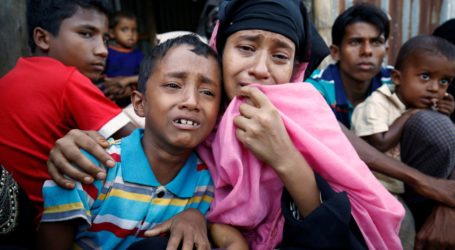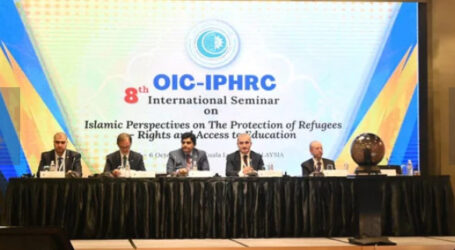SOUTH AFRICA APOLOGIZES FOR ANTI-IMMIGRANT VIOLENCE


Pretoria, 29 Jumadil Akhir 1436/18 April 2015 (MINA) – South Africa on Friday apologized to African countries and the international community for a recent spate of attacks on foreign migrants in the mineral-rich country.
“It is… with a deep sense of pain and regret that we, as the South African government, humble ourselves and express our heartfelt apologies to the African continent – and indeed the international community at large – for these unwarranted developments,” International Relations and Cooperation Minister Maite Nkoana-Mashabane said in an address to African diplomats in Pretoria.
The minister said her government views the anti-immigrant attacks as “criminal” offences that would not be tolerated, Anadolu Agency quoted by Mi’raj Islamic News Agency (MINA) as reporting.
“South Africa is a constitutional democracy governed by laws. Everyone working and living in the country must obey its laws in their totality,” she said.
“The South African government will enforce the laws of the country and will not hesitate to act against criminal activity or those found to incite violence,” she added.
South Africa has seen increasing anti-immigrant violence that has mostly targeted migrants from elsewhere in Africa.
The violence began last week in the coastal city of Durban, where mobs descended on the homes and shops of foreign migrants, accusing them of stealing jobs, committing crimes and putting a burden on social services.
Six people have died so far in the violence.
The bloody incidents have forced some people from Malawi and Mozambique to leave South Africa after their governments hired buses to bring them back to their home countries.
Co-existence
Nkoana-Mashabane said South Africa’s transition to democracy was one of the world’s best testimonies to tolerance and peaceful co-existence.
“Under the stewardship of the father of a democratic South Africa, Nelson Mandela, the country undertook an unwavering dedication to democracy, human rights, selflessness, reconciliation, service to humanity and a better life for all,” she said.
The minister asserted that the recent anti-immigrant attacks constituted a threat to the country’s historic achievements.
“The recent attacks on foreign nationals, particularly fellow Africans from various African countries, are a threat to our historical achievements as a nation,” she said.
The top diplomat also said her government would do everything in its power to ensure the safety of all citizens and foreign nationals, irrespective of their status in the country.
“Similarly, foreign nationals must meet all the legislative and regulatory requirements as prescribed by our immigration laws,” she said, adding that South Africa welcomed and promoted interaction among people of different backgrounds.
“As a country that cherishes human rights, we have to protect the basic rights of every human being within our borders,” she stated.
There are hundreds of thousands of African migrants living in South Africa, the majority of whom are involved in the informal business sector.
They have been the most affected by the recent disturbances, with their shops and homes often being looted whenever there are service delivery protests.
Seven years ago, more than 50 African migrants were killed across the country in xenophobic attacks by angry South Africans. (T/P001/P3)
Mi’raj Islamic News Agency (MINA)






